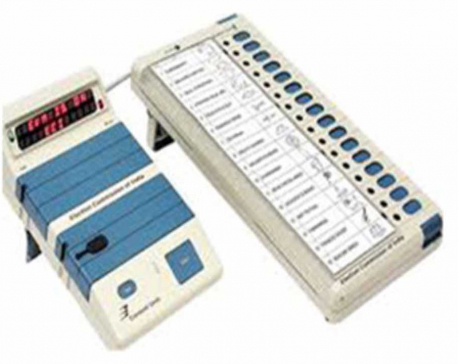
OR
State-run enterprises
The resumption of operation of the state-owned Nepal Drugs Ltd on Sunday after a hiatus of eight years is something to cheer for all Nepalis. The state-owned drug maker had stopped production in 2009 after it failed to meet the Good Manufacturing Practice of World Health Organization. On Sunday, it resumed the production of Jeevan Jal, an oral rehydration salt, which had once been its most successful brand. NDL has installed new plants in order to fulfill WHO requirements, for which the government had provided it with a loan of around Rs 150 million. In a phase-wise manner, the company aims to ultimately produce 15 different types of most-consumed medicines in Nepal and even intravenous fluids. If so, it will be great news for Nepali consumers. This is because, as the company’s new motto, ‘Quality Medicine at Reasonable Cost’ suggests, the goal is to make it possible for each and every Nepali citizen to procure vital medicines. The 2015-16 border blockade, which had resulted in severe shortage of India-made medicines in Nepali markets, had amply highlighted the need for domestic production of at least vital medicines and to reduce the import of all medicines. We had it wrong from the start.
Among the core objectives of the laissez-faire liberalization regime ushered in by Nepali Congress following the 1990 political change was privatization or disbandment of nearly all government-controlled sectors. With the hand of the ‘meddling’ state supposedly withdrawn, private companies would compete among themselves to provide people the best value for their hard-earned money. Yet this ignored the crucial fact that in an underdeveloped country like Nepal, and where the size of the informal economy is arguably larger than the size of the formal economy, leaving everything up to the market was a recipe for disaster. Instead of many private players competing on cost and quality there emerged a handful of oligopolies in every privatized sector. The regulatory state organs nearly non-existent, these oligopolies soon came to dominate their markets. They were free to charge as much as they wanted for goods and services of doubtful quality. Vital companies like Nepal Drugs and Birgunj Sugar Mills, which used to provide vital goods at reasonable cost, were allowed to go kaput. With the private sector also hamstrung by the seemingly never-ending political transition, imports increased and the country’s trade deficit ballooned. There are also other reasons to promote these state-controlled enterprises.
There could perhaps be few better illustration of the vitality of these seemingly inefficient and capital-draining state-owned enterprises than in the immediate aftermath of the 2015 earthquake. Nepal Telecom kept intact vital communication through its free call and messaging services; Radio Nepal was broadcasting live updates from quake-hit regions non-stop; and at the forefront of post-disaster relief-and-rescue operations were not international donors or private sector actors, but the personnel of the two police forces and Nepal Army. Separately, of late, Nepal Airlines has been able to successfully turn itself around under a new management, bringing down the costs in all the domestic and international routes it operates in. Perhaps one day Nepal will reach a stage of economic development whereby it has a robust private industrial base, its service sector is relatively mature and its regulatory agencies adequately empowered and independent, then perhaps the state could gradually withdraw from the economy. But for the foreseeable future state-owned enterprises like Nepal Airlines and Nepal Drugs will continue to have important roles.
You May Like This

Time to declare EVMs’ end
The massive scale of resource waste incurred by a single project, the Election Commission's electronic voting machine (EVM) endeavour, has... Read More...

Nepal-Qatar Relations: Prioritize promoting interests of Nepali migrant workers
The two-day state visit of Qatar’s Emir Sheikh Tamim bin Hamad Al Thani, the first by a head of state... Read More...

Take necessary measures to ensure education for all children
Thousands of children, with bright minds and hopeful futures, are still denied the fundamental right to education in Sarlahi district... Read More...





Just In
- CM Kandel requests Finance Minister Pun to put Karnali province in priority in upcoming budget
- Australia reduces TR visa age limit and duration as it implements stricter regulations for foreign students
- Govt aims to surpass Rs 10 trillion GDP mark in next five years
- Govt appoints 77 Liaison Officers for mountain climbing management for spring season
- EC decides to permit public vehicles to operate freely on day of by-election
- Fugitive arrested after 26 years
- Indian Potash Ltd secures contract to bring 30,000 tons of urea within 107 days
- CAN adds four players to squad for T20 series against West Indies 'A'












Leave A Comment